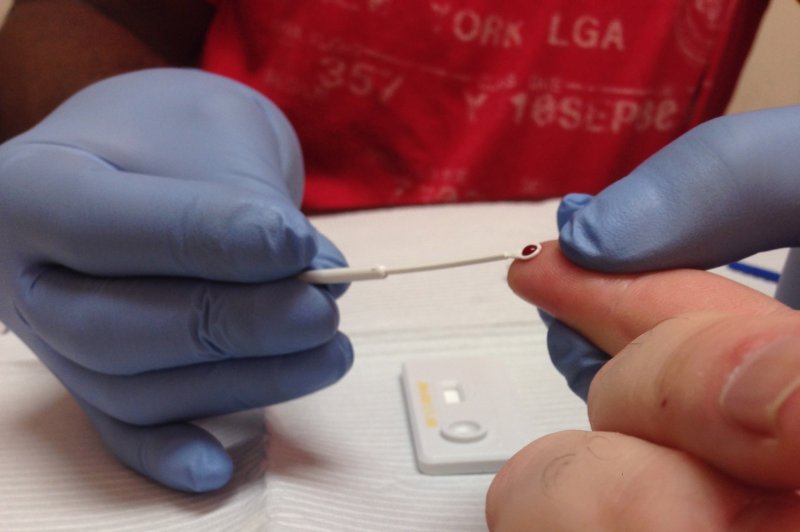On average, it took 63 days for HIV-positive people in the iENGAGE trial to achieve viral suppression. Photo by Equality Michigan/Wikimedia Commons
March 8 (UPI) -- A new approach to treatment is bringing hope to people living with HIV.
On average, it took 63 days for HIV-positive people in the iENGAGE trial to achieve viral suppression, according to study results presented this week at the Conference on Retroviruses and Opportunistic Infections. And 86 percent of those people maintained suppression after the 48-week study.
"Even when facing many other challenges in their lives, the majority of people engaged in HIV care can achieve viral suppression, benefiting their health and preventing transmission of the virus to others," Anthony S. Fauci, director of the National Institute of Allergy and Infectious Diseases, said in a news release.
About 31 percent of patients in the study had depression and 30 percent had anxiety, while about one-third reported high-risk alcohol use and 18 percent reported substance use.
iENGAGE concentrated in communities in Baltimore, Seattle, Birmingham, Ala. and Chapel Hill, N.C., where viral suppression rates hit only 60 percent just 10 years ago.
During the trial, the patients were randomly placed into two groups. In one group, patients followed antiretroviral therapy, or ART. Patients in the other group received four in-person counseling sessions based on the participants' needs, along with phone support and ART care.
The results of iENGAGE, the researchers say, underscore the need for changes in HIV treatment guidelines, which should promote early treatment for HIV-positive people and stress the need to continue receiving care after a diagnosis.
The researchers say the trial also highlights the importance of finding new strategies to engage and treat people with HIV.
An estimated 1.1 million people in the U.S. have HIV, according to the Centers for Disease Control and Prevention.
"To end the HIV epidemic in the United States, we must ensure that effective HIV prevention and treatment strategies are accessible to all who need them, especially in the areas of the country with the highest HIV burden," Fauci said.















